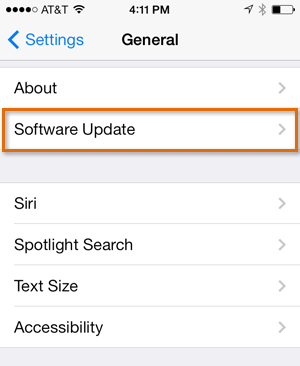

/en/iphonebasics/iphone-x-8-and-8-plus-frequently-asked-questions/content/
On September 16, 2015, Apple released iOS 9. We'd like to offer you a brief overview of iOS 9 and try to answer some questions you may have at this time.
iOS 9 is no longer the most recent operating system, so parts of this lesson may be out of date. To learn more about the newest version, click here for more information on iOS 12.
iOS 9 is a version of the mobile operating system for Apple devices, including the iPhone, iPad, and iPod Touch. iOS 9 contains several new features that will make your device easier to use.
iOS 9 is free to download, like all previous versions of iOS.
iOS 9 is available now.
If you have an existing iOS device, you can download and install iOS 9. Just go to Settings, select General, and tap Software Update.
This may cause your phone to upgrade to iOS 12, Apple's newest version.

iOS 9 is available for the following devices:
While it's not required, we recommend upgrading your device to iOS 9 if possible. This will help keep your phone up to date and working with newer apps.
Yes, but some apps may not always work correctly. If you don't upgrade to iOS 9, you may want to research how well an app will work on your device before downloading or updating it.
Even if an app has always worked perfectly on your device, there is a chance that the newer versions may only run smoothly on iOS 9. You may want to avoid updating your favorite apps unless you are sure they will work with your device's operating system. Once you update an app, you won't be able to go back to an older version.
Yes. Any app you previously had installed on your phone will still be there once you upgrade to iOS 9. Some built-in Apple apps, like Messages and Calendar, will be updated automatically when you upgrade.
Almost all apps installed on iOS 8 should work correctly in iOS 9. If not, the app developer will likely release an update to address the issue.
/en/iphonebasics/ios-10-frequently-asked-questions/content/